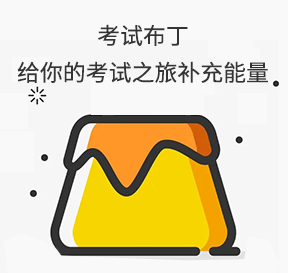正确答案: A
the upper part of one's body
题目:In the last sentence, the word "bust" most probably means ______.
解析:解析:应该正确理解出现本词汇的最后一个句子“A few even accepted commissions to make busts of prominent citizens.”B选项的意思为“自画像”,和C以及D的意思与句子的语境意义不符。本句话的意思为“一部分木雕师甚至接受任务给名人做上半身塑像”。
查看原题查看所有试题
学习资料的答案和解析:
[单选题]Guest: Oh, I hadn't realized how late it was. I'm afraid I'll have to be going. Host: Oh, not yet. I'm just going to make some coffee. Guest: ______ , though I'd really love to stay. I've got to be up by six tomorrow morning, unfortunately. Thank you for a wonderful party.
I'm sorry, but I must
解析:解析:主人诚心挽留,客人坚持要走。由于不能接受主人的好意,客人应表示歉意,故而选择A.I'm sorry,but I must比较合理。其他选项使用场合不当。
[单选题]He was in a hurry and left things in a real ______.
mess
解析:解析:in a mess意为“处于混乱之中”;mixture意为“混合,混合物”;mass意为“一块”;confusion意为“混乱,混淆”。
[单选题]All the firemen in the city were ______to fight against the big fire.
called up
解析:解析:called in意为“回收”;called off意为“取消”;called up 意为“召集,打电话,使人想起”;called on意为“访问(某人)”。
[单选题]We can infer by this label that ______.
the medicine could cause some people to feel nervous
解析:解析:B和C选项的内容与原文不符,属于错误信息;D选项内容也不正确,这种药为tablet意思为“药片”,本身并不是液体。A选项的内容可以由短文的最后一个句子“Reduce dosage if nervousness,restlessness,or sleeplessness occurs.”所确认。
[单选题]The passage suggests that the early shops for making tools were ______.
not very sophisticated
解析:解析:本题的依据句是“At first,these articles were whittled with a knife,but when pioneer craftsmen set up their primitive shops most of them were fashioned on a lathe--a machine which holds an object and rotates it while it is being shaped by a tool.”在这里,A选项的not very sophisticated 意思为“并不复杂,是简单的”,对应原文中的primitive(原始的,简单的)。其他选项的内容属于无关信息。
[单选题]
B. way
C. means
D. method
正确答案:A解析:other than=not(而不是),为一个固定搭配词组。
thanB. way
解析:解析:other than=not(而不是),为一个固定搭配词组。
[单选题]Wang (guest): That was a delicious dinner. Mrs. Willis (hostess): ______. Would you like to go to the living room now? It's more comfortable there.
I'm glad you enjoyed it
解析:解析:客人对主人招待的饭菜有好评,主人一般会客气地说声“谢谢”或表示“很高兴受到好评”。A.Thank you.Don't mention it.后一部分不符合习惯,属于画蛇添足; B.You're welcome.一般用于回答别人的致谢;C.Not so delicious,I'm afraid.符合汉语习惯,在英语中则显得过于自谦。

 川公网安备 51012202001362号
川公网安备 51012202001362号